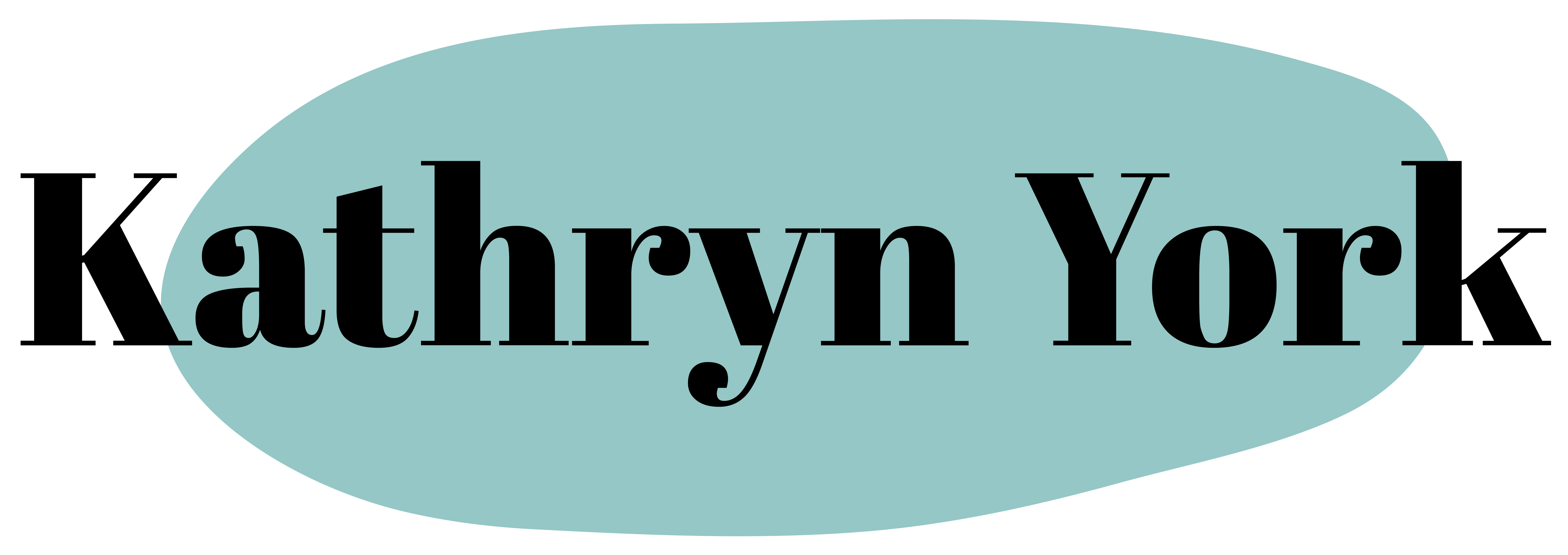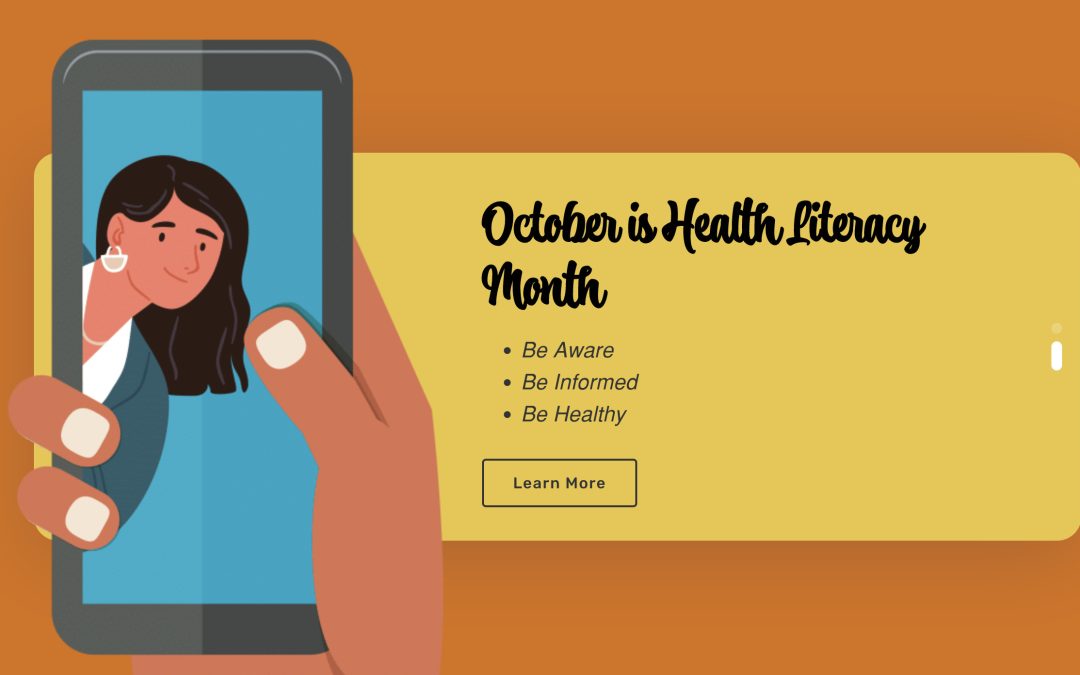October is National Health Literacy & Depression Awareness Month
Originally Published on a Dose of Wellness website.
Improving health literacy is key to providing better healthcare for everyone. One of the silver linings of the COVID-19 pandemic is an increased focus on diversity, equity, and inclusion in healthcare. Equitable and effective healthcare is only possible when individuals have the capacity to understand basic health information and make appropriate health decisions for themselves.
This month is Health Literacy Month, a fitting time to promote beneficial skills, strategies and resources for improving health information. While health literacy can be especially challenging for vulnerable populations and those with cultural and language differences, even the most highly educated often still know very little about their own body or health.
Nine out of ten adults struggle to understand and use health information when it is unfamiliar, complex, or jargon-filled
An important part of being an informed patient or patient-centered healthcare provider is understanding health literacy. According to the Centers for Disease Control, personal health literacy “is the degree to which individuals have the ability to find, understand, and use information and services to inform health-related decisions and actions for themselves and others.” For more than 20 years, Health Literacy Month has offered an opportunity to recognize the importance of making health information easier to understand and act on, and to come together as organizations and communities to raise health literacy awareness and help make that happen. Help shift health literacy awareness to health literacy action this October.
Here in New Mexico, the University of New Mexico Hospital is working on the effort year-round through its Health Literacy Office, which is dedicated to improving the ways health information is communicated so that patients can find and understand health information in order to get the care they need.
The UNMH team helps staff create clear, reader-friendly written materials, which are also translated to Spanish and Vietnamese. The office also teaches staff to speak clearly and check for understanding and helps individuals decipher health information. If you have been given a document that is hard to understand, you can fill out this pdf and send it to the team at healthliteracy@salud.unm.edu.
Patients Rising, a nonprofit organization, also offers some strategies for patients to follow to improve their health literacy. Before your next doctor appointment, check out these tips:
- Write down a list of questions before you go to each appointment so that nothing is forgotten
- Ask for clarification if something doesn’t make sense
- Patients learn in different ways – is there a different way the information can be explained? (i.e. drawings, pictures, etc.)
- Have a caregiver with you – two sets of eyes and ears are better than one
- If the doctor doesn’t speak your native language, bring a trusted friend or family member that can help interpret. Alternatively, ask the front desk staff if an interpreter can be provided (interpreter services are more available than ever)
- Ask how to interpret your lab results – what do they mean, what is considered the normal range, what should you be concerned about, etc.
- Ask if there are different treatment options that fall in line with what you value as a patient
- Ask if these treatments are covered by your insurance
- Ask if coupons are available to help offset costs for medications that are more expensive
Improving health literacy is also important in the mental health arena. As the World Health Organization says, there is “no health without mental health.” By improving health literacy, we can get better treatment for mental health conditions.
National Depression & Mental Health Screening Month
In addition to being Health Literacy Month, October is also National Depression & Mental Health Screening Month, an observance designed to highlight the need for depression awareness and accessible and affordable mental health screenings. The New Mexico Human Services Department Behavioral Health Services Division (BHSD) is committed to bridging the connection between physical and mental health through the Dose of Wellness campaign.
Staying attentive to your mental health is important for everyone. Depression is a serious health condition that affects the way you think, behave, and feel. Those with depression often feel extreme sadness, and a loss of interest in activities they used to enjoy. While depression is a highly treatable condition, statistics from the Substance Abuse and Mental Health Services Administration show that only 44.2 percent of adults with mental illness in New Mexico get treatment.
Not everyone experiences depression in the same way, but it can affect anyone at any time. A number of different environmental, genetic, psychological, or biological factors often come into play. That’s why it’s important to get screened or seek out professional help if you or someone you care about experiences depressive symptoms. The National Alliance on Mental Illness has a website with a host of helpful resources for New Mexicans.
For those individuals interested in residential treatment, there are eight Adult Accredited Residential Treatment Services (AARTCs) now enrolled as Medicaid providers and eight applications are under various stages of review. See below:
- Hoy Recovery Center
- Shadow Mountain – Rio Rancho
- Shadow Mountain – Taos
- Santa Fe Recovery – Long Term Residential
- Santa Fe Recovery – Short Term Residential
- Santa Fe Recovery – Detox Center
- Four Corners Detox Recovery Center
- Four Winds Recovery Center
Agencies wishing to provide Adult Accredited Residential Treatment Services require the submission of an application for approval by the Human Services Department/Behavioral Health Services Department. At a minimum the facility must be:
- Enrolled as a Medicaid provider
- Must have accreditation through the Joint Commission, Commission on Accreditation of Rehabilitation Facilities (CARF), or Council on Accreditation (COA)
- Requires use of the American Society for Additional Medicine (ASAM) Criteria and levels of care
- Must have a Life and Safety Inspection approval from Department of Health
This October, be proactive in regards to your mental and physical needs. Taking care of yourself is always a first priority. Be Aware. Be Kind. Be Inclusive. Be Healthy.
Resources:
- National Alliance on Mental Illness (New Mexico)- https://naminewmexico.org/
- Mental Health America- Depression Screening Tool- https://screening.mhanational.org/screening-tools/depression/?ref
- New Mexico Treatment Connection – https://www.treatmentconnection.com/


Recent Comments